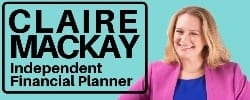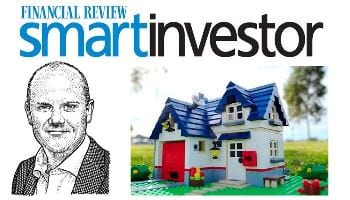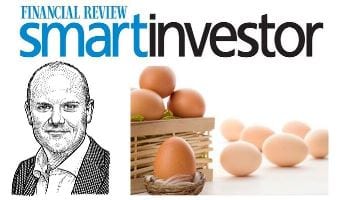I discuss with Bridie Barrie and Prue Miller on Sky Business News investing in property in your Self Managed Super Fund (SMSF).
Transcript of our interview
Bridie Barry: Welcome back. Well with the ongoing share market turmoil and cash deposit rates remaining so low, can property investment be the answer for balancing the risks in your superannuation? The rules were made a little easier back in 2007 to make it possible to borrow to buy property through your self-managed superannuation funds. It’s a strategy that’s been growing in popularity, but it’s not without risks. So how do you do it? How do you borrow to buy property through an SMSF and what are the advantages and disadvantages? To explain this complex area and make it simple for us, we’re joined by Claire Mackay, independent financial advisor from Quantum Financial. Claire, thank you so much for coming in.
Independent financial advisor Claire Mackay: It’s a pleasure. Thank you.
Bridie Barry: So just basically explain for us how things were made easier back in 2007 to allow you to do this.
Independent financial advisor Claire Mackay: So they changed the law to make it more simple and there is a precise structure in which you can do it. Having said that, it’s not straightforward, you do need to get advice because it is a complex area.
Bridie Barry: Oh, absolutely.
Prue Miller: Just the buying the property part or the self-managed fund part?
Independent financial advisor Claire Mackay: Both, because what you’re doing is you’re buying a big asset, a property and that, as you guys know, is a lot of issues you’ve got to consider there. Then you’re looking at putting your retirement savings to purchase that property and then the overlay of all the legal structure that you need to use. So like I said, you want to get advice in this area.
Bridie Barry: Have you noticed it is becoming a more popular strategy because you hear a lot of people sort of say, “Oh, you can borrow to buy through your super,” or you hear some spruikers also offering this sort of strategy.
Independent financial advisor Claire Mackay: Absolutely, and if you remember, we had the thing called the GFC.
Independent financial advisor Claire Mackay: So a lot of people’s superannuation went down.
Prue Miller: Yes.
Independent financial advisor Claire Mackay: And with their superannuation going, they’re thinking, “Well, maybe I can invest it better than the professionals.” And so that was another encouragement as well.
Bridie Barry: I mean looking obviously at some of the advantages though first, before we get into the risks, I mean there are definite tax benefits aren’t there to doing this?
Independent financial advisor Claire Mackay: Well if you’re on the top margin, if… Okay, step one.
Prue Miller: Step one. What’s the property you’re buying?
Independent financial advisor Claire Mackay: You can only use to buy commercial property, business property or residential property that no one you actually know or care about will ever use.
Bridie Barry: Exactly.
Independent financial advisor Claire Mackay: You can’t use it to buy a holiday house or a vineyard [chuckle] or half your home. You can’t do that. So the advantage there is you’re buying it purely for investment, and you’re using your retirement savings which you cannot take out until you retire to buy that investment that will hopefully help support you in retirement.
Bridie Barry: So that you put everything you got in the world on the line, on a market which fluctuates.
Independent financial advisor Claire Mackay: And that’s the stress. So if you’ve got… You can purchase a property using your super, if you’re then also getting debt to purchase your property so you’ve used all your super savings and you’re getting debt, that’s a lot of eggs in one basket.
Bridie Barry: Absolutely. I guess just on the tax benefit though, I mean looking at the advantages of this strategy, so how does that…
Independent financial advisor Claire Mackay: So you can put money into super under the current rules where there are restrictions on how much you can, which is part of, you get a tax deduction for that or it reduces your taxable income really. And the income that comes in on the property is taxed in the super as well and so it’s all wrapped up there.
Bridie Barry: And if you sell it as well, then?
Independent financial advisor Claire Mackay: If you sell it, then it’s taxed at the superannuation rate which may be less than your personal rate.
Bridie Barry: So you can speculate to an extent, you could continue to buy and sell property. You can buy… You don’t have to hang onto it once you’ve bought this great property. You sell it, you make a profit, you move on, you buy the next one, in an ideal world?
Independent financial advisor Claire Mackay: In an ideal world. And also, but the structure has to be set up each time.
Bridie Barry: Yes. So you need an accountant by your hip.
Independent financial advisor Claire Mackay: Absolutely, I mean I think the key concern is that you’re using your retirement savings, and you might make a profit and you might keep making a profit or you might not.
Prue Miller: Yes.
Bridie Barry: Looking at the costs then, so what are we looking at? You’ve gotta set up the SMSF if you haven’t got one already?
Independent financial advisor Claire Mackay: You can’t use it, yeah… You can’t use it in your normal superannuation fund, you can’t use it in an industry or your employer fund. You have to set up a self-managed super fund so there are costs associated with that. There’s the cost of ongoing and maintaining that each year, and then there’s the overlay of the cost of the legal structure if you need lending to purchase that fund. If your superannuation is such that you cannot purchase the property outright.
Bridie Barry: And is that that limited recourse borrowing…
Independent financial advisor Claire Mackay: Exactly, yes.
Prue Miller: Is it possible to put a dollar figure on how much then it costs you extra to do this?
Independent financial advisor Claire Mackay: I would say that you’re probably looking at a minimum of five to 10 grand, per year. Yeah.
Prue Miller: And also, for the lenders as well, do they view this sort of strategy as more of a risk…
Independent financial advisor Claire Mackay: Absolutely, there’s always been a differential between the interest rate they’ll give you as an individual and then what they would give to a self-managed super fund. And secondly, the amount that they’ll let you borrow compared to the value of the property is generally lower, so a lot of the institutions are putting a limit on 70% of the value.
Bridie Barry: Right. Okay.
Prue Miller: What about grouping together with other friends with, married couples have got this superannuation, sisters and brothers, can you combine a few superannuations together?
Independent financial advisor Claire Mackay: So the most you can put into one super fund is four people, and generally most superannuation funds have a couple in them or a single person. Very few have four people in them, and again it’s an investment strategy, so you wanna make sure you know it’s easy to get it, with a bit of complexity, but what’s the plan of getting out? So if you’re friends, what happens when their life changes that you hadn’t planned about?
Prue Miller: Yeah, they suddenly want to move to Paris, they take their money with them and you’re stuck with a house in Bella Vista.
Bridie Barry: So what, in terms of how much do you actually need in your super then to be able to borrow to buy?
Independent financial advisor Claire Mackay: So it comes down to how much of a deposit you need and all the ongoing costs associated with that. So we have seen in the past people encouraging people to set up super funds with very small balances, to then borrow the full amount using all the super to purchase the property. I would err against that. Again, that eggs, one basket…
Independent financial advisor Claire Mackay: What if you mess up? Because the thing is, you need the investment to create income, and you need a job to keep putting your super in.
Bridie Barry: Yes.
Independent financial advisor Claire Mackay: If either of those go the numbers may not make sense.
Prue Miller: Yeah. Is there a limit, though? A minimum that you would say is, “Okay, let’s look at this.”
Independent financial advisor Claire Mackay: Well again, it comes down to: Is this just one asset or is part of a bigger portfolio?
Prue Miller: Yep.
Independent financial advisor Claire Mackay: Some lenders are now saying that the total funds must be at least 200,000 in your super. So they themselves are putting on a cap. But there is, at the moment, no legal limit.
Bridie Barry: You were saying before, the kinds of properties you can buy. Is this more suited to, say, the commercial property? Someone who’s a dentist, say, and they wanna buy the surgery in their super? I mean, is that the sort of thing where it works?
Independent financial advisor Claire Mackay: This has been typically who’s used it.
Bridie Barry: Okay.
Independent financial advisor Claire Mackay: So business owners who have an office or a warehouse and they’ve used it, and they can use it, the rules allow them to use it in their business. Not personal enjoyment, but business. And they’ve bought their offices or their practice premises in their super fund.
Prue Miller: It’s still just… Being an ordinary sort of person, that just scares me to death. The potential legal dramas and having the police on my doorstep.
Independent financial advisor Claire Mackay: [laughter] I know!
Prue Miller: Are they very strict, obviously, on how you…
Independent financial advisor Claire Mackay: Absolutely. Absolutely.
Prue Miller: Use it to make sure that people aren’t living in their own…
Independent financial advisor Claire Mackay: [chuckle] Exactly. That’s the key one, is if you’re deriving any enjoyment from the property, or your niece or your niece’s boyfriend, or someone that’s related to you, then that could actually cause you to lose all the tax benefits that you mentioned earlier. And the other thing is that this is a big asset and if your super is not diversified into other assets as well, there’s another risk there. The other one is that, to get the borrowing in the first place oftentimes the banks want a personal guarantee, as well as security on the property. So they’re pretty strict about who they’re lending to as well.
Bridie Barry: So just wrap it up for us, then. What are the keys, I guess, if you’re looking at this sort of strategy, borrowing to buy property through your super, what are the key things that you need to think of?
Independent financial advisor Claire Mackay: The key thing is the underlying investment: Does it make sense? And then the structuring: Is the additional complexity and cost worth it in your overall family’s financial plan?
Bridie Barry: And the pitfalls?
Independent financial advisor Claire Mackay: The pitfalls are if you don’t get experts involved early you might make mistakes, you might have double stamp duty, additional costs. You just don’t want to go there. If you’re going to consider this, partner with experts.
Bridie Barry: It comes back to the basics, really, like you said. The underlying investment it’s all about getting that right, too, to begin with. [laughter]
Independent financial advisor Claire Mackay: Exactly. This is just an additional complexity, but the underlying investment has to make sense.
Bridie Barry: Yeah. Claire, thank you so much. It’s so complex, but you’ve made it very simple. Thank you so much for that.
Independent financial advisor Claire Mackay: It’s a pleasure. Thank you.
Bridie Barry: Claire Mackay there, from Quantum Financial, just taking us through that. How to borrow property through your super. Coming up after this short break we’re gonna be heading to Brighton, in Melbourne, beautiful Brighton, ahead of our next live auction, for you.





Great interview Claire! It’s a complicated issue which you have simplified. Thanks for sharing.
Thanks for the kind words Chris – glad you enjoyed!